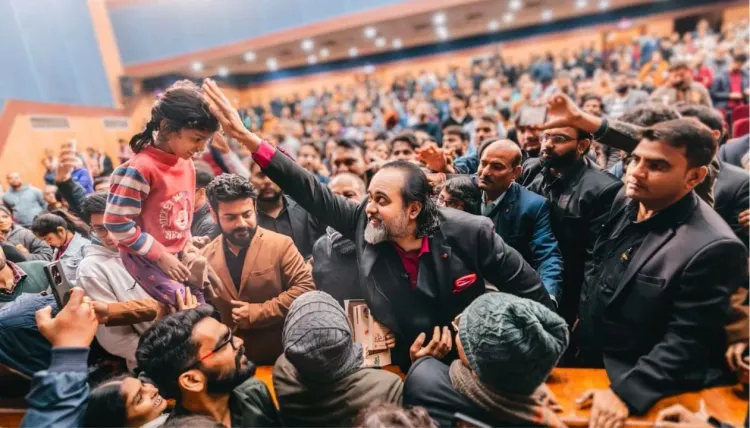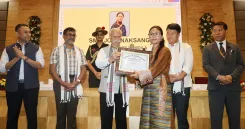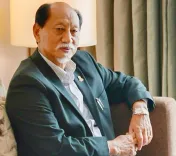Can Garlands Truly Replace Clarity? Acharya Prashant on Teachers' Day

Synopsis
Key Takeaways
- Teachers are the guardians of society's future.
- Education should focus on clarity and inquiry.
- Teaching is a calling, not just a job.
- Students must be encouraged to explore their identities.
- The education system must value both external knowledge and self-knowledge.
New Delhi, Sep 5 (NationPress) On Teachers' Day, philosopher and author Acharya Prashant honored the nation’s educators, deeming them the true guardians of society's future. He advocated for this day to transcend mere rituals and greetings, urging instead a profound reflection on the genuine purpose of education — nurturing clarity, inquiry, and inner strength.
"Human beings experience two births," he stated. "The first is biological, and the second, which is truly human, is the birth of clarity. Schools and teachers exist for this second birth. Without it, we may produce skilled professionals but leave them unclear and insecure as human beings."
He pointed out that nations that value teachers prosper, while those that disregard them decline, irrespective of their wealth or size.
"India possesses abundant talent," he commented, adding, "but what it lacks is a system where genuine teachers can flourish and young minds are encouraged to think freely."
Addressing current issues, he remarked that teaching is now often viewed as a safe career rather than a noble calling.
"In a conscious society, teaching should be the highest vocation, not a fallback for mediocrity. Yet positions remain unfilled, many teachers are ill-prepared, and classrooms are neglected as educators are redirected to election and survey duties. We have reduced teachers to mere clerks of the state, cheap labor for errands while young minds go unattended. This is not negligence — it is a betrayal. When the teaching role is treated with such disdain, how can the youth feel inspired?"
He cautioned that beneath administrative shortcomings lies a deeper issue — an education system diminished to rote learning, exam results, and job placements.
"Students are conditioned to believe that life holds value only if they achieve unattainable targets, all while being denied the freedom to explore who they truly are. This stifles the mind, and in many heartbreaking instances, leads to self-harm. The problem lies not with the student but within a system that denies them the education that is most crucial: the education of the self," he noted.
Acharya Prashant emphasized the necessity for two distinct streams of learning.
"We require knowledge of the world — science, language, history, technology — to maintain functionality in life. Equally important is self-knowledge: understanding where knowledge is beneficial and where it falls short. Without this, we generate cleverness devoid of wisdom and achievements devoid of fulfillment," he elaborated.
Citing Vedanta, he described these as 'avidya' and 'vidya': one keeps life operational, while the other infuses life with meaning.
For educators, he urged a focus not solely on lesson plans but also on personal clarity.
"Who you are resonates before what you teach. Students first perceive the teacher's essence, only then their words. The true connection is not about control but care, not about grades but about recognition," he said.
He remarked that authentic teachers frequently face resistance because they challenge the ego rather than soothe it.
"The genuine teacher liberates the student to the extent that they no longer depend on the teacher. To confine such an individual to garlands on a single day is self-deception. The true teacher is not a mere individual or a date on the calendar, but the persistent call of truth that refuses to allow us to live narrowly," he concluded.
In closing on this Teachers' Day, he stated: "The real tribute is courage: the courage to ensure qualified and supported teachers, the courage to reestablish inquiry at the core of classrooms, and the courage to provide our children with both aspects of education — external and internal. Without teachers of clarity, no nation can endure its own cleverness. We may produce engineers, doctors, and executives, but absent wisdom, they merely construct higher prisons for themselves. Teachers' Day is not about flowers on a desk; it is about liberating the next generation from ignorance and fear. If this does not occur, then every day becomes a funeral for education."





